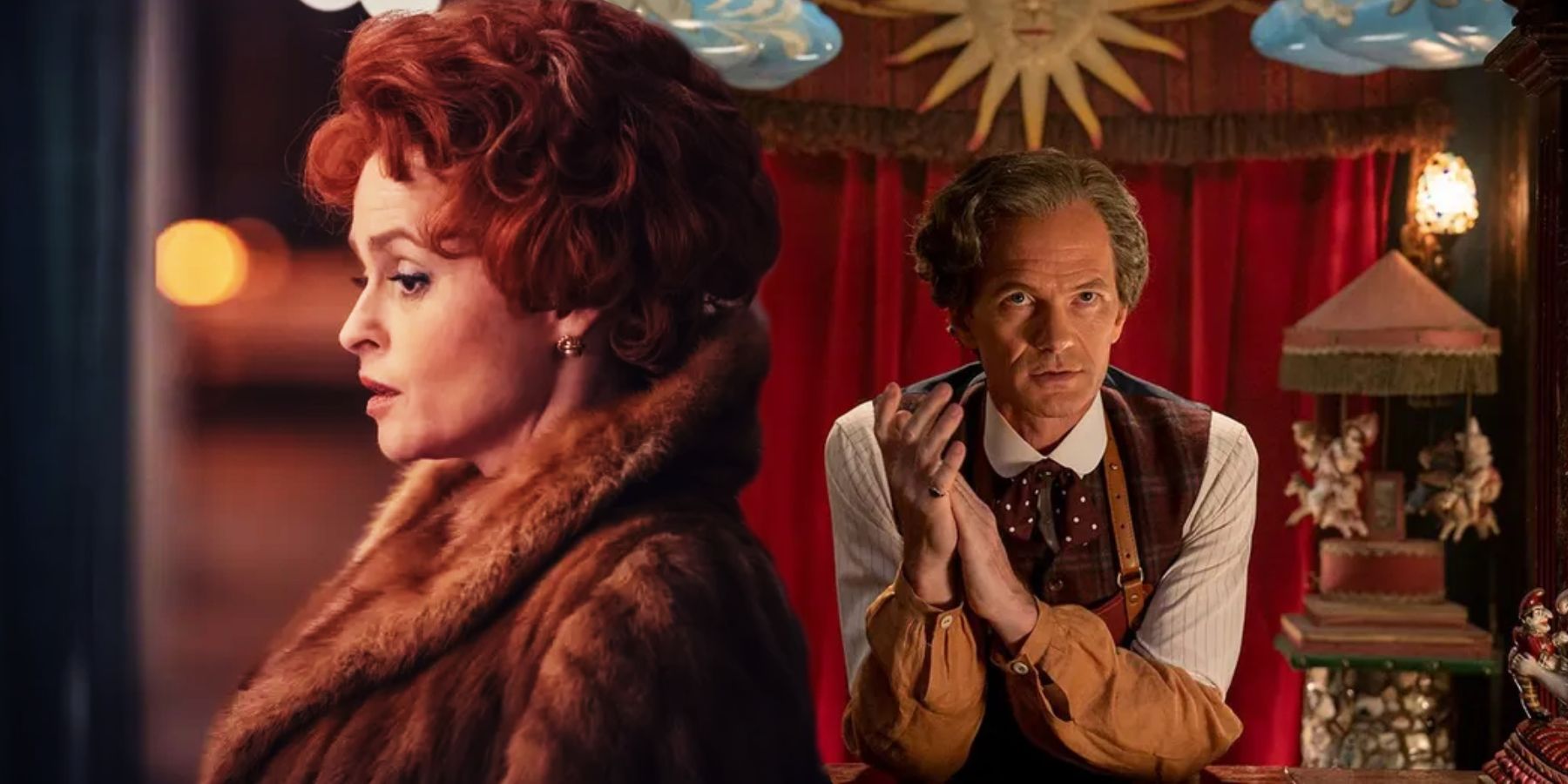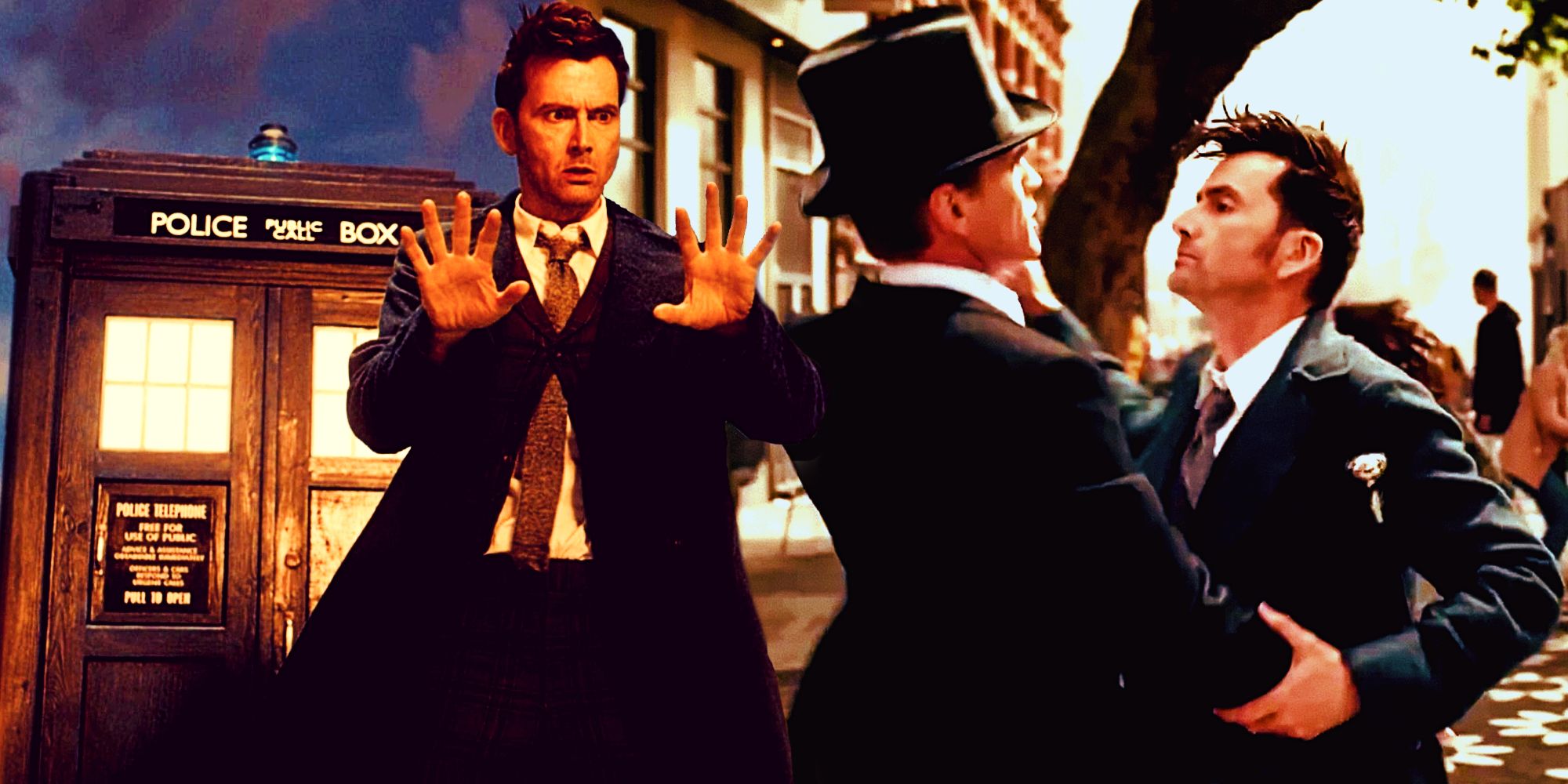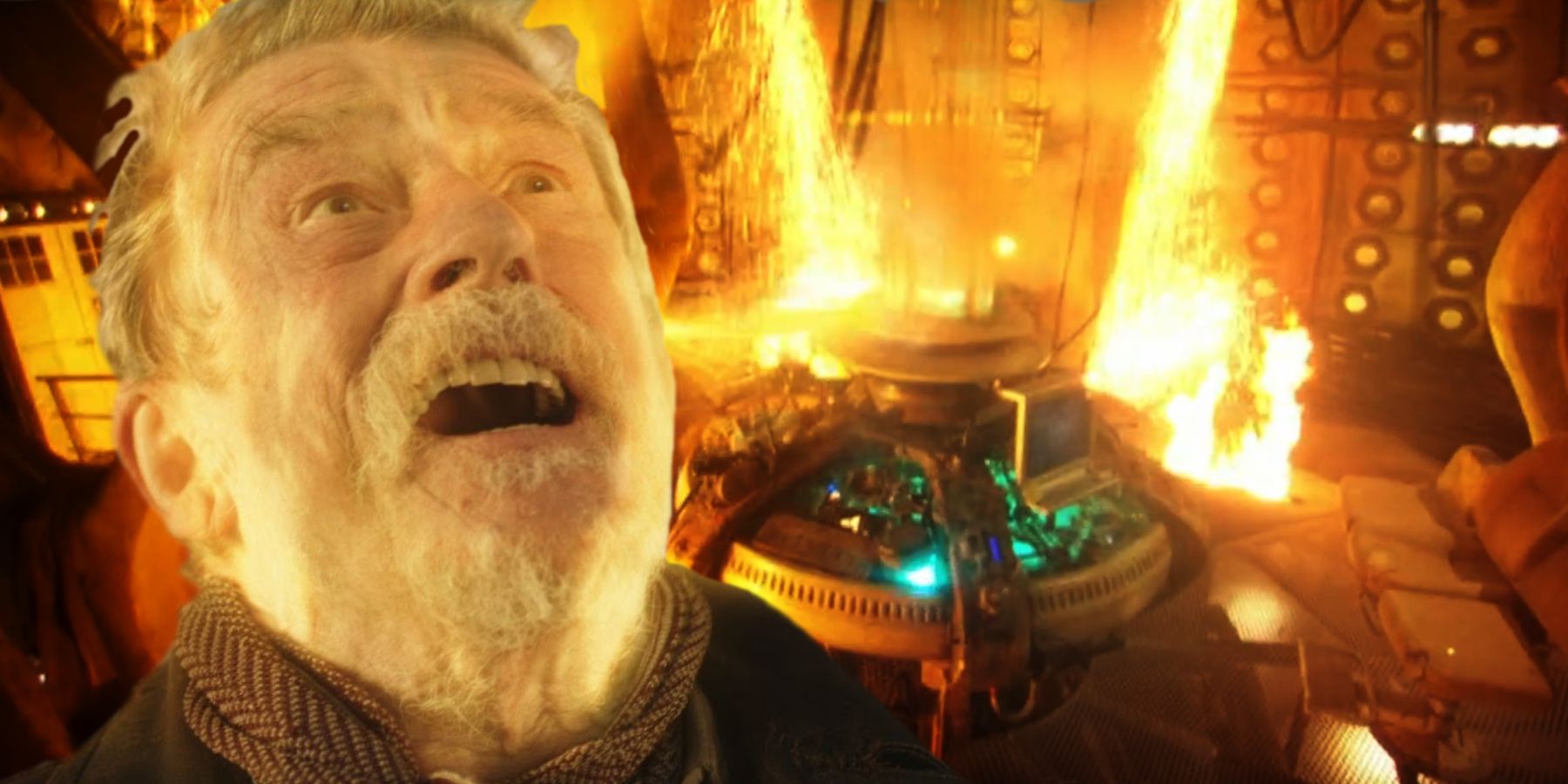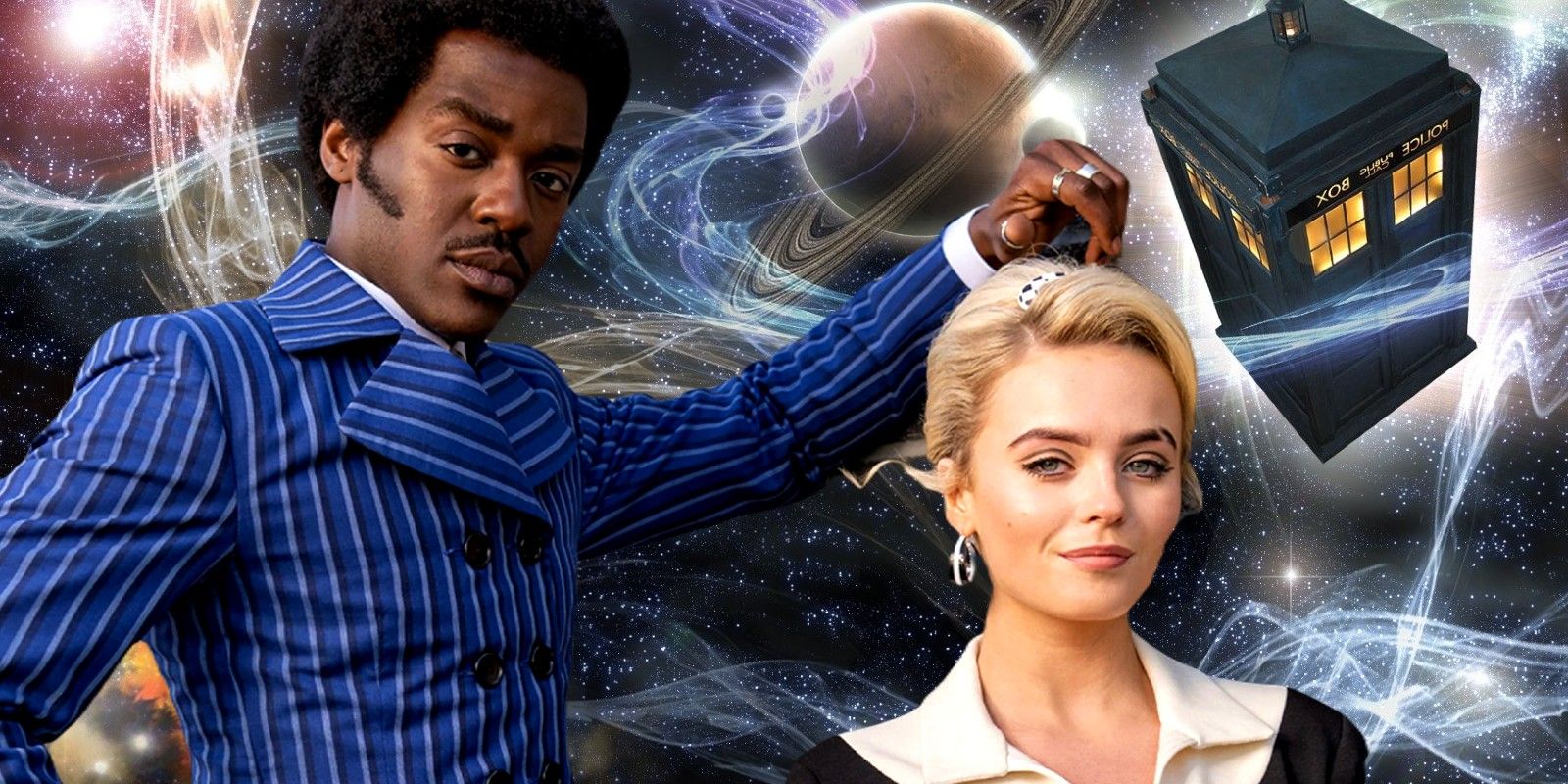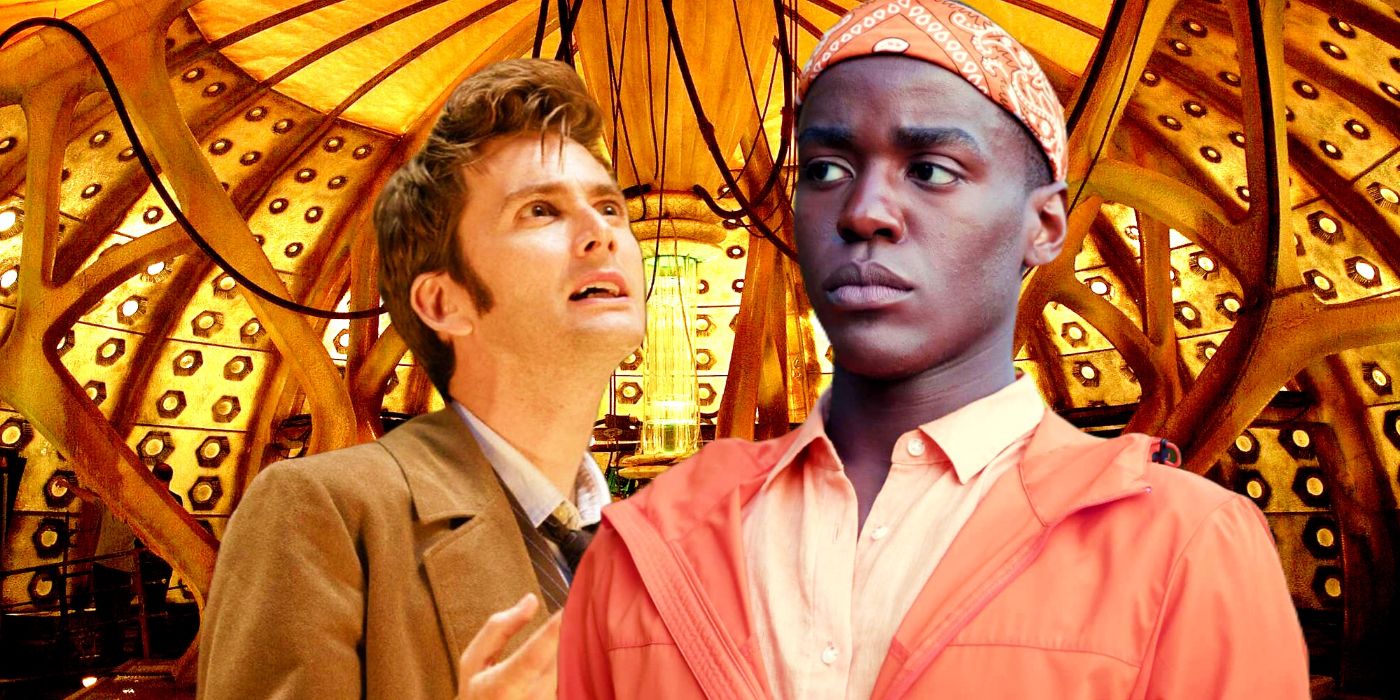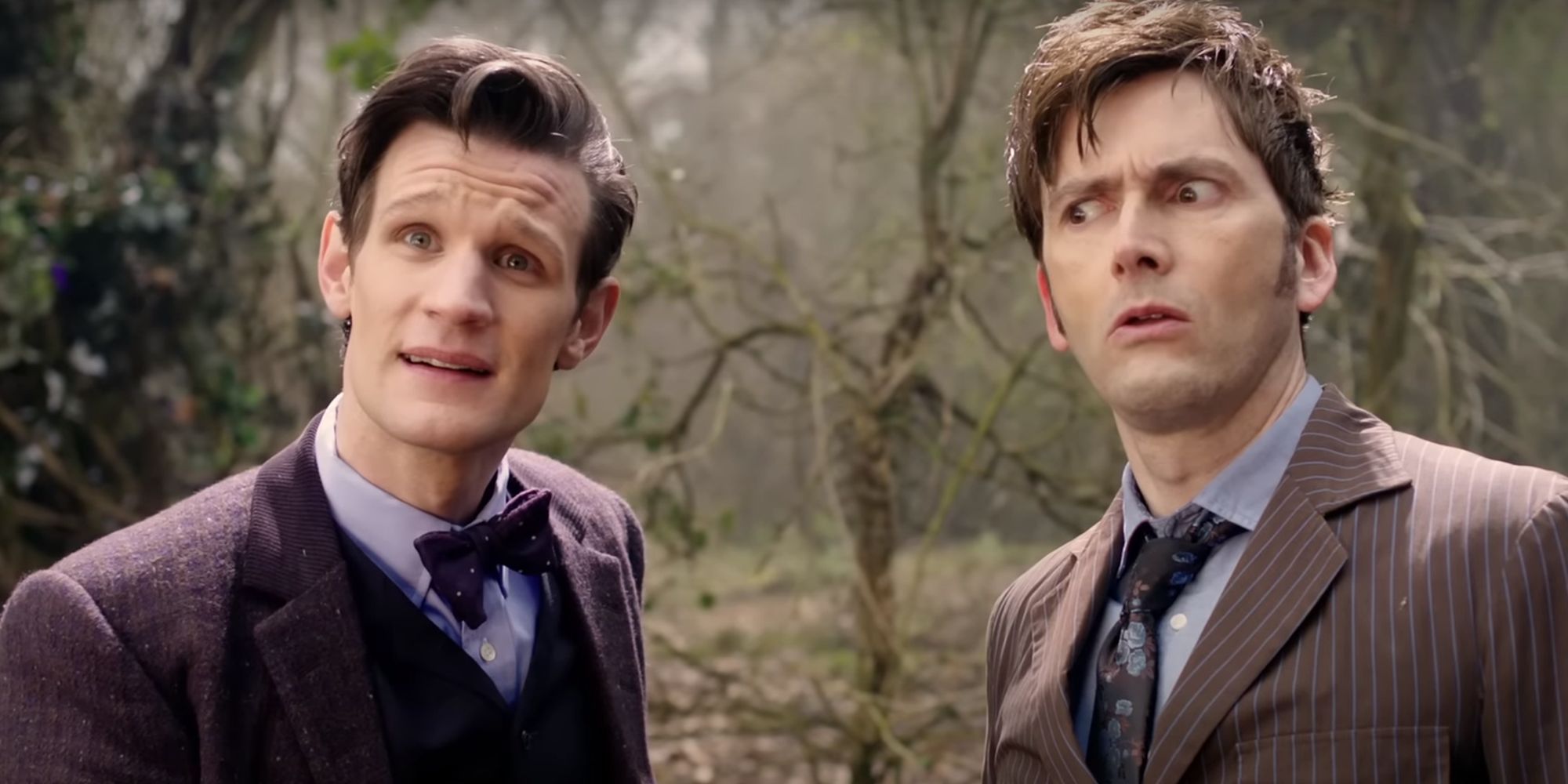
The Astonishing Connection Between Doctor Who's Toymaker and a Controversial David Tennant Episode Villain

The Toymaker's sinister plan unfolds as Doctor Who hints at a connection with The Wire RTD's past work backs up this theory, suggesting the Toymaker uses TV to manipulate humanity against David Tennant's Doctor
Summary
The Toymaker's return after 57 years is just one of many nostalgic treats in store for Doctor Who fans in the 60th anniversary specials.
Russell T Davies hints at a potential connection between the Toymaker and The Wire, alluding to their similar approaches in targeting the human race.
The television's history seems to play a significant role in the anniversary specials, with suggestions of John Logie Baird's role and the Toymaker utilizing television as a means to turn humanity against the Doctor and UNIT.
The plans of the Toymaker (Neil Patrick Harris) may have similarities with a forgotten villain from David Tennant's first Doctor Who era. Tennant's Fourteenth Doctor will join forces with Donna Noble (Catherine Tate) to confront the machinations of the Toymaker in three 60th anniversary specials written by Russell T Davies. Interestingly, this will only be the second time that the Doctor and the Toymaker have encountered each other on screen, despite the villain's significant impact on Doctor Who fandom since their initial appearance during the William Hartnell era.
The Toymaker's return to Doctor Who after 57 years is just one of the many nostalgic treats awaiting fans. Russell T Davies is also adapting the beloved Doctor Who Weekly comic strip "Doctor Who and the Star Beast" to bring Beep the Meep (Miriam Margoyles) to the screen. However, there is another villain from RTD's first era that has a connection to the Toymaker and their potential plot to turn the entire human race against the Doctor and UNIT in the third special, "The Giggle". Subtle hints by RTD in his monthly Doctor Who Magazine column, along with a closer examination of television history, reveal an unexpected possible link between the Toymaker and The Wire (Maureen Lipman) from the season 2 episode, "The Idiot's Lantern".
Your browser does not support the video tag.
Doctor Who Is Teasing A Link Between The Toymaker And The Wire
In early 2023, a chilling ventriloquist dummy was unveiled in the first official trailer for Doctor Who's 60th anniversary. The trailer hinted at the Doctor's encounter with this creepy doll in the final special titled "The Giggle," where the Doctor reveals that the mischievous Toymaker is mocking humanity. This eerie concept is reminiscent of a previous episode from season 2, written by Mark Gatiss, entitled "The Idiot's Lantern." In this episode, the Tenth Doctor faced a foe known as the Wire, who used TV screens to communicate with and exploit humans during the Queen's Coronation. The Wire fed off the mental energy of the audience as they gathered around their new television sets. Ultimately, the Doctor outsmarted the Wire by imprisoning it inside an obsolete Betamax tape, ensuring it could never be viewed again.
It is improbable that the Toymaker is in cahoots with the Wire, but their methods of attacking humanity seem oddly alike. Russell T Davies hinted in Doctor Who Magazine that two well-known historical figures will make cameos in the 60th anniversary specials. One of these famous historical figures might be none other than John Logie Baird, the creator of television. In 1924, Baird conducted experiments to transmit a television signal between his rooms at Frith Street in London, using the head of a ventriloquist dummy named Stooky Bill. Remarkably, this dummy bears a striking resemblance to the one featured in the trailers for Doctor Who's 60th anniversary special.
RTD's Previous Show Supports Doctor Who's Toymaker TV Theory
In addition to featuring historical figures in its 60th anniversary specials, Doctor Who also made an intriguing reference to the show prior to the return of RTD. The reference was to a three-part miniseries called Nolly, which centered around Noele Gordon, a prominent soap star from the UK. According to RTD, there is some connection between Nolly and the special episode. This connection is particularly fascinating because it involves Noele Gordon and John Logie Baird, who actually met each other way back in 1928. In Nolly, Gordon, played by Helena Bonham-Carter, reveals that she was the first person to ever appear on television in color—an entirely true fact.
On July 3rd, 1928, an 8-year-old Noele Gordon took part in John Logie Baird's inaugural color broadcast. RTD's hint about a potential Doctor Who connection to Nolly, along with the apparent presence of Stooky Bill, suggests that the anniversary specials revolve around the history of television. To add to this, location filming photos revealed David Tennant and Catherine Tate mingling with extras in 1920s attire. As Doctor Who commemorates its 60th anniversary, it appears that it will also pay homage to the evolution of television itself.
Theory: The Toymaker Uses TV To Turn Humanity Against David Tennant's Doctor
In the latest preview for the Doctor Who's 60th anniversary specials, the Doctor and Donna make a visit to the timeless shop owned by the Toymaker. This is the very same shop where an unidentified person had been seen entering in a previous trailer. Given the hints dropped by RTD, it is highly likely that this character is portrayed by a well-known star, indicating their historical importance, much like John Logie Baird. It is plausible that Logie Baird had purchased Stooky Bill from the Toymaker back in 1924, thereby embedding a signal that the returning Hartnell-era Doctor Who antagonist will utilize to turn humanity against the Doctor and UNIT.
The use of television as a weapon seems fitting for a Doctor Who tale set in 2023, especially in the age of fake news. Russell T Davies has a history of making bold satirical statements, as demonstrated in his Ninth Doctor episode addressing the Iraq War and flatulent extraterrestrials. It would align with his style to utilize the show's 60th anniversary as an opportunity to discuss the evolution of television from 1963 to 2023. With Doctor Who embarking on a new digital era through a global streaming agreement with Disney+, there is no more opportune moment for the Doctor to confront the very essence of television itself.

